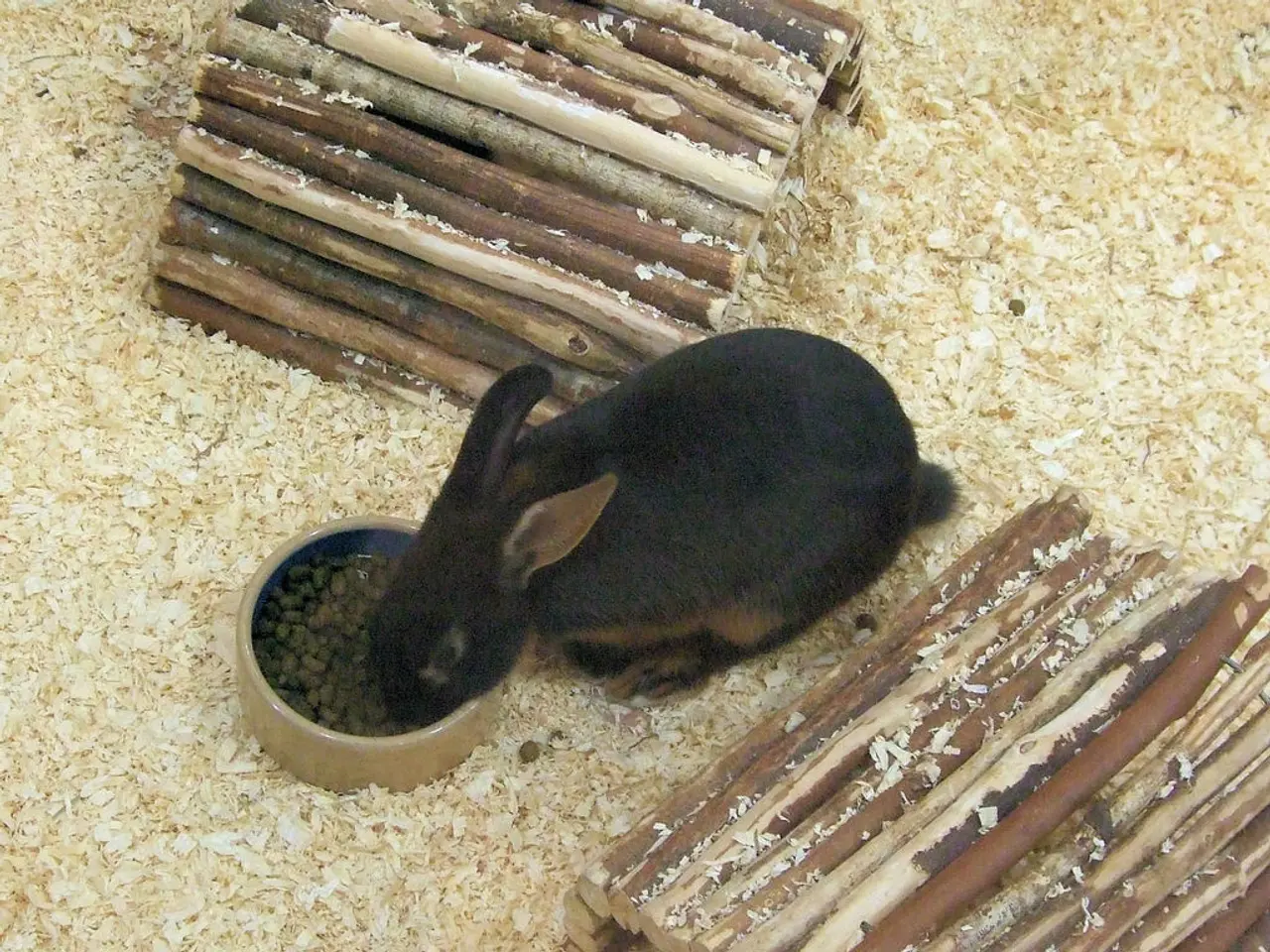Rabbit's Food Fast Survival: Veterinarian Discloses Length of Time Without Nourishment
Rabbits, with their delicate digestive systems, require a constant supply of fiber-rich food like hay to maintain proper gut motility. Going without food for more than a few hours, ideally no longer than 12, can lead to serious health issues, such as gut stasis, a potentially life-threatening condition where the digestive tract slows down or stops.
Recognising the signs of gut stasis is crucial for rabbit owners. These include reduced or no fecal pellet production (small or absent droppings), decreased appetite or refusal to eat, lethargy and weakness, abdominal discomfort or bloating, teeth grinding (indicating pain), a hunched posture, and reluctance to move.
Gut stasis, a common disorder in rabbits, necessitates immediate veterinary care if a rabbit's appetite decreases or stops. As prey animals, rabbits often hide early signs of ill health, making it important to get them checked over if anything seems amiss.
The causes of gut stasis can be varied, including an inadequate diet and stress. Rabbits in gut stasis may require fluid therapy, medications to improve gut movements, pain relief, and nutritional support.
To keep a rabbit happy and healthy, provide a nutritious and appropriate diet, a spacious, safe, and clean home, regular grooming, daily exercise, mental and physical stimulation, socialization, and learn about rabbit body language to prevent distress.
Rabbits can be kept active with suitable rabbit runs, rabbit harnesses, rabbit toys, and foraging mats that activate their natural foraging instincts. By understanding the signs of gut stasis and taking proactive steps to ensure a proper diet and care, rabbit owners can help their pets lead happy, healthy lives.
Rebecca, a veterinary surgeon with experience in first opinion small animal practice, recently achieved a BSAVA postgraduate certificate in small animal medicine (with commendation). Her expertise underscores the importance of seeking professional advice when dealing with potential health issues in rabbits.
- A dog, despite being a different species, also requires a balanced diet for good health and nutrition.
- In the realm of pet health-and-wellness, it's crucial to monitor a cat's behavior, as sudden changes can indicate illness.
- Grooming is not just about aesthetics; it ensures a pet's hygiene, which contributes to their overall health and well-being.
- The science of nutrition plays a significant role in the health of all pets, from the selection of appropriate food to understanding dietary requirements.
- Medication is sometimes necessary for pets, especially when they're unwell, and it's important to administer it correctly as prescribed by a veterinary professional.
- Just like rabbits, cats can benefit from toys that stimulate their minds and bodies, promoting happiness and a sense of wellness.
- Pet owners should prioritize regular veterinary check-ups, as preventive care is essential for early detection of potential health issues and timely intervention, much like Rebecca's proactive approach in her practice.




